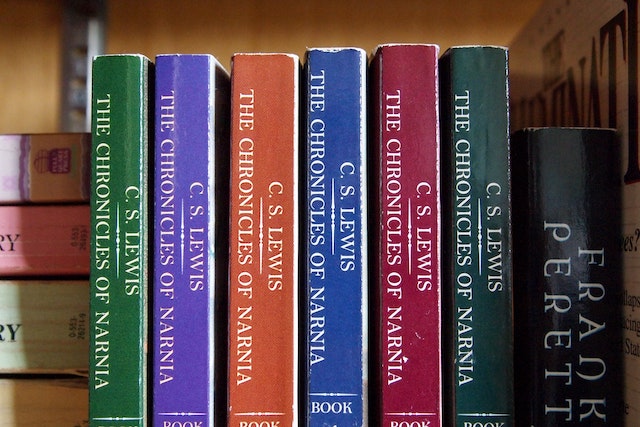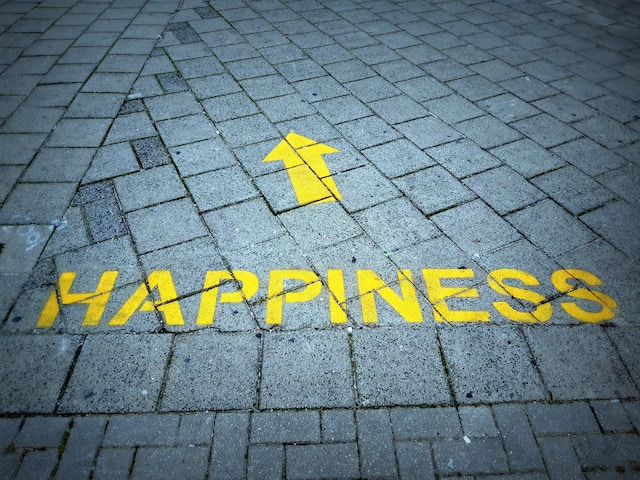All humans yearn for happiness. But how do we define happiness? Isn’t happiness subjective? After all, people chase different pursuits in life.
My children often ask me, “Mommy, are you happy?” in an attempt to distinguish and understand different emotions. Even my 2-year old has realized that “happiness” exceeds other emotions in its desirability.
But if happiness is an emotion, is it fleeting from day-to-day or moment-to-moment? And, if so, why do we strive for something so temporary? Do we live life differently if we want to achieve long-term happiness rather than short-term happiness?
Do some people just enter the world happy? In other words, do our genes and personality play a role in how happy we feel on a regular basis? If so, it follows that some people must make greater efforts than others in order to achieve happiness.
Happiness elicits a lot of questions. And thus, not surprisingly, a lot of confusion.
What is Eudaimonia?
A few months ago, I stumbled across the word “Eudaimonia” (hear the word pronounced here). Upon learning the definition, I became intrigued.
“Eudaimonia,” a Greek word, means “happiness or well-being, the main universal goal, distinct from pleasure and derived from a life of activity governed by reason.” (source).
Dictionary.com defines “Eudaimonism” as “an ethical doctrine holding that the value of moral action lies in its capacity to produce happiness.” (source)
The concept of “eudaimonia” originated in Aristotle’s Nicomachean Ethics. Not surprisingly, various interpretations exist, but scholars universally agree that “eudaimonia” stands in contrast to “hedonic happiness.” Hedonism is “the doctrine that pleasure or happiness is the sole or chief good in life.” (source).
Many articles on the internet contrast hedonism with eudaimonism, and essentially, hedonism amounts to maximizing short-term pleasures (e.g. eating a delicious meal or going to a party) and minimizing pain. Whereas, eudaimonia focuses on long-term mental and physical flourishing by living a virtuous and purposeful life.
What, then, constitutes a virtuous life? Would not the answer to this differ from person to person just like responses to a question about the definition of happiness?
Aristotle’s theory relies on eleven moral virtues by which humans should abide (as explained in more detail in the YouTube clip above). However, even Aristotle seemed to acknowledge that people will have varying opinions on this issue based on their values.
C.S. Lewis, a British author and theologian (and the subject of this article on eudaimonia), would likely say a virtuous life centers on Christian morals and principles.

Is Pursuing Happiness The Right Goal?
What if we could achieve happiness without happiness itself as the actual pursuit?
Aristotle wrote: “…honor, pleasure, reason, and every virtue we choose indeed for themselves (for if nothing resulted from them we should still choose each of them), but we choose them also for the sake of happiness, judging that by means of them we shall be happy.” Nichomachean Ethics, 1.7 1097a[30]-1097b.
In the C.S Lewis article referenced above, the author writes: “Our English word ‘happiness’ usually refers to a feeling or subjective state of pleasure, satisfaction, contentment, or enjoyment – a largely subjective, superficial, and luck-dependent matter. But classical thinkers seldom, if ever, conceived of eudaimonia in that way.” (source).

Life is full of hardship. If we have an end goal of happiness, as defined by pleasure, won’t we end up disappointed? If luck plays a role, how much control over our happiness do we really have?
While difficult to recognize, life’s challenges often lead to greater satisfaction, ultimately. In fact, my experience with cold plunging led me to this very conclusion. And if these challenges produce discomfort, they arguably discredit hedonism and other more mainstream definitions of happiness.
If this strategy results in true happiness, why do so many of us ask the simple, short-term focused question? Because it’s EASY. How we actually live our lives requires discipline and effort.
The Marriage of Health and Happiness
In the C.S. Lewis article, the author compares eudaimonia to health. He writes, “health is a common analogue to eudaimonia in classical thought,” and eudaimonia is “no more subjective than health.”
But is health really objective? While everyone might agree that terminal illness does not constitute health, beyond a certain threshold or baseline, opinions could differ greatly.
Must someone have the ability to ambulate freely without pain? Does “health” mean proper functioning of all five senses? Does someone with a chronic disease have “health?”
Nevertheless, the comparison of health and eudaimonia makes sense to me. After all, without health, can we achieve happiness or well-being? The two typically go hand-in-hand. Hence, the common idiom of wishing loved ones “health and happiness.”

Realistically, most people will experience at least one health hardship in their lives, and how disheartening to think it could render happiness impossible.
Since many noble life pursuits and virtues exist independent of health, I believe one can achieve eudaimonia without it. That said, accomplishing most of those pursuits with poor health would prove quite challenging. Essentially, the union of health and happiness certainly trumps their divorce.
When my kids bring home illnesses from school, we typically operate on survival mode and pine for the day when everyone heals.
Similarly, when I prioritize my personal health, life feels infinitely easier. It typically manifests in my mood and energy levels. When I have high energy and a stable mood, my days feel peaceful and productive. Whereas, low energy and oscillating moods usually lead to frustration, a lack of patience, and numerous other negative impacts.
This begs the question: If we live life in a manner supportive of our health, will happiness naturally result? If so, this reinforces the theory that we should aim for something other than happiness if we want to actually achieve happiness.
What Does Modern Day Science Say About Happiness?
In the past few decades, a significant amount of research has taken place on this topic.
“The Science of Well-Being,” a popular course taught at Yale, is now available to the general public through Coursera, an online learning platform with classes taught by universities all over the world. I enrolled in the course and completed the first month of classes.
We quickly learned that what most people think will make them happy, won’t. Good grades, a high paying job, a nice house, the “perfect” body – none of these things will amount to happiness.

What, then, will make us happy? Well, the field of Positive Psychology has made a lot of headway when it comes to answering that question. Positive Psychology shifted the traditional clinical focus from pathology (focusing on what is wrong) to a more positive-centered approach.
Some interesting findings and concepts include the following:
- A 2010 study concluded that money might buy happiness, BUT only up to $75,000 per year. Beyond that, the researchers found no appreciable differences with regard to emotional wellbeing.
- A 2018 study found a linear relationship between religious involvement and happiness.
- Dr. Martin Seligman, a prominent psychologist in the field of Positive Psychology, created the PERMA model to define happiness-
- Positive Emotion – how someone is feeling
- Engagement – full involvement and participation in stimulating activities
- Relationships – safe and nurturing relationships with other people
- Meaning – having a life purpose greater than self
- Accomplishments – achievement and mastery
- According to the Yale course, we can rewire our brains for happiness by practicing gratitude, focusing on our strengths, and living in the moment/savoring the present (essentially, living mindfully rather than dwelling on the past or thinking about the future).
- The capacity for happiness depends on 3 factors: 1) Genetics, 2) Circumstances, and 3) Intentional Activity. Thus, it follows that humans have at least some control over their happiness.
*Sources for the above studies:
https://www.unh.edu/pacs/positive-psychology-strategies-increased-happiness
https://positivepsychology.com/happiness/#train-brain-happiness
The Eudaimonian Mindset
In all honesty, I did not arrive on this planet full of smiles, laughter, and a care-free spirit. I have a serious, naturally anxious, introverted, and somewhat neurotic personality, none of which bodes well when it comes to happiness (the emotion).
Because of this, I spent a good part of my life searching for the feeling of happiness. Most of the time, I equated it to excitement and a lack of worry.
But, the concept of eudaimonia has made me think much deeper about this issue. It caused me to question, and ultimately, change my mindset. Now, I place much less emphasis on happiness than I did in the past.
Instead, I try to focus on the bigger picture of life. I aim for specific, long-term goals based on my values. Ideally, these goals require tasks I typically enjoy.

The concept of eudaimonia has had such a large impact on my thinking and way of life, that my company’s mission statement centers around it.
To me, it seems, no straightforward definition of happiness exists. But eudaimonia, as opposed to the more common, everyday interpretation of happiness, centers less on pleasure and more on purpose.
Medical Disclaimer: I am not a physician or a medical professional. The content shared on this jessicatrone.com is for informational purposes only, is not a substitute for the advice of medical doctors and should not be used to prevent, diagnose, or treat any condition. Consult with a physician prior to beginning any fitness, health, or wellness regimen or routine. The content on jessicatrone.com is based on the opinion and personal experiences of its author and is solely for educational and informational purposes. Jessicatrone.com is not liable for how you choose to implement and use the information contained in it.
How do you define happiness?
Were you familiar with the concept of eudaimonia?
What is a life worth living? And if we live that life, will it guarantee “happiness?”

be the first to comment